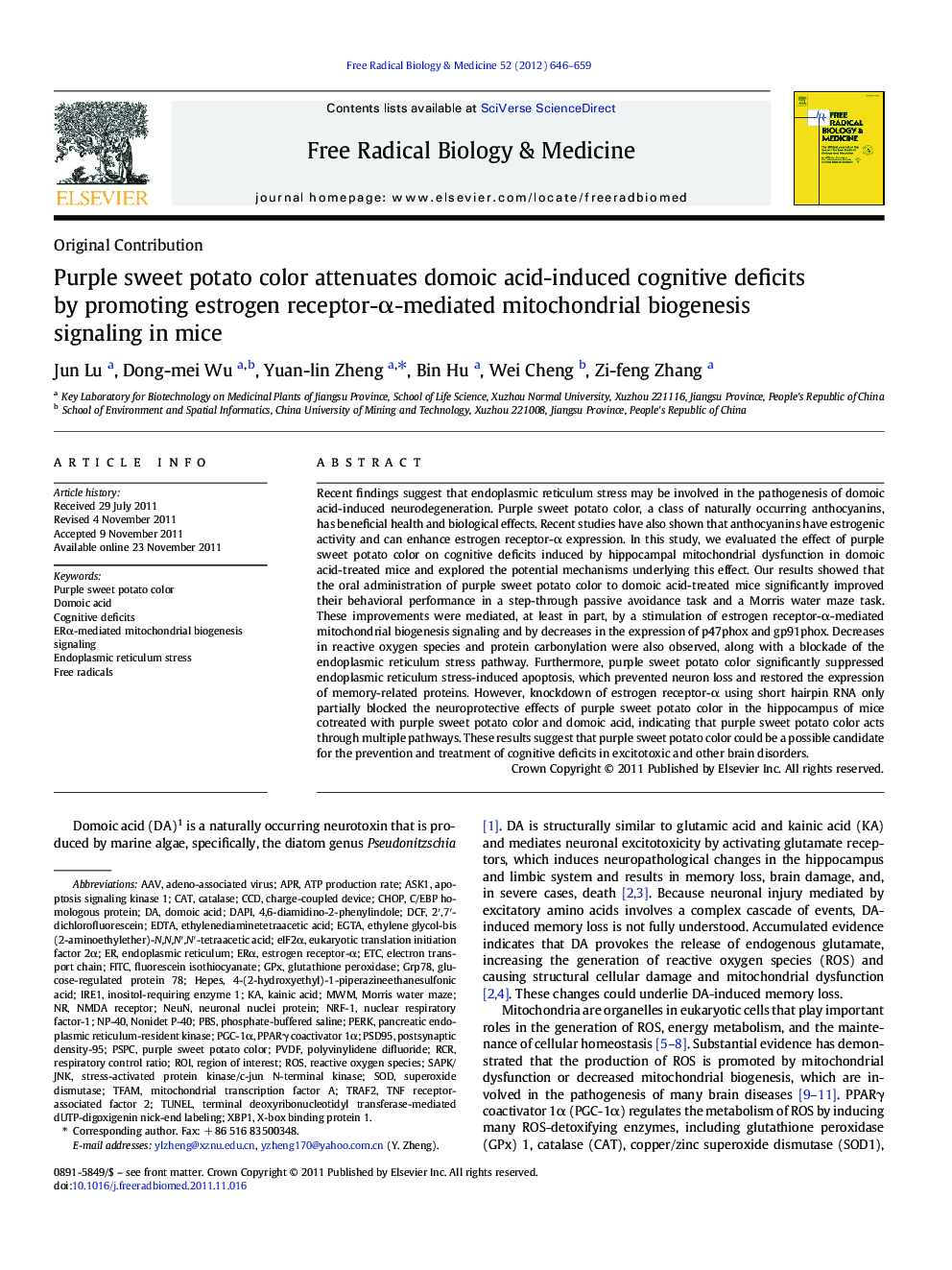| Article ID | Journal | Published Year | Pages | File Type |
|---|---|---|---|---|
| 1908864 | Free Radical Biology and Medicine | 2012 | 14 Pages |
Recent findings suggest that endoplasmic reticulum stress may be involved in the pathogenesis of domoic acid-induced neurodegeneration. Purple sweet potato color, a class of naturally occurring anthocyanins, has beneficial health and biological effects. Recent studies have also shown that anthocyanins have estrogenic activity and can enhance estrogen receptor-α expression. In this study, we evaluated the effect of purple sweet potato color on cognitive deficits induced by hippocampal mitochondrial dysfunction in domoic acid-treated mice and explored the potential mechanisms underlying this effect. Our results showed that the oral administration of purple sweet potato color to domoic acid-treated mice significantly improved their behavioral performance in a step-through passive avoidance task and a Morris water maze task. These improvements were mediated, at least in part, by a stimulation of estrogen receptor-α-mediated mitochondrial biogenesis signaling and by decreases in the expression of p47phox and gp91phox. Decreases in reactive oxygen species and protein carbonylation were also observed, along with a blockade of the endoplasmic reticulum stress pathway. Furthermore, purple sweet potato color significantly suppressed endoplasmic reticulum stress-induced apoptosis, which prevented neuron loss and restored the expression of memory-related proteins. However, knockdown of estrogen receptor-α using short hairpin RNA only partially blocked the neuroprotective effects of purple sweet potato color in the hippocampus of mice cotreated with purple sweet potato color and domoic acid, indicating that purple sweet potato color acts through multiple pathways. These results suggest that purple sweet potato color could be a possible candidate for the prevention and treatment of cognitive deficits in excitotoxic and other brain disorders.
Graphical abstractFigure optionsDownload full-size imageDownload high-quality image (46 K)Download as PowerPoint slideHighlights► Reactive oxygen species (ROS) is linked to domoic acid (DA)-induced memory deficits. ► Purple sweet potato color (PSPC) possesses anti-oxidant activities. ► Results show that PSPC improves DA-induced memory deficits by blocking ER stress. ► These actions are mediated by the activation of estrogen receptor-α (ERα) signaling. ► PSPC could be a possible candidate for treatment of excitotoxic brain disorders.
